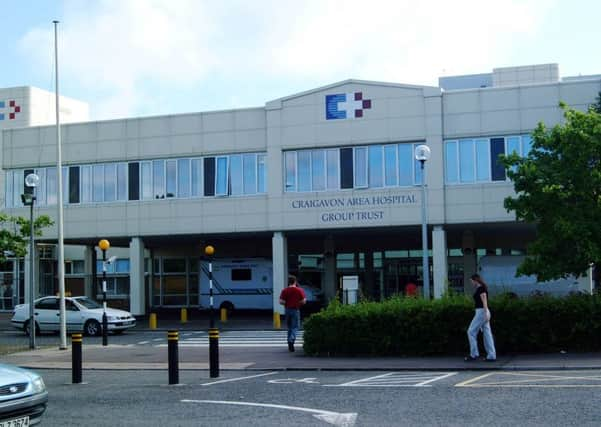Inpatient surgery cancelled at Craigavon Hospital


A Trust spokesperson said the winter vomiting and diarrhoea virus is ‘now seriously impacting on our hospitals’.
“As you may be aware, Norovirus in the community is now seriously impacting on our hospitals.
Advertisement
Hide AdAdvertisement
Hide Ad“We have cancelled all inpatient surgery (all day cases will continue as planned) today (Wednesday) to ensure the safety of patients as the risk of patients catching Norovirus is too high.
“We are working hard to arrange new dates as quickly as possible for any of the patients affected.
“The situation will continue to be reviewed to assess if more cancellations are required in the days ahead.
“We have issued public appeals in recent days in the media and via social media asking people to stay away from our hospitals unless absolutely necessary due to the risk of spreading this infection to our patients and staff.”
Advertisement
Hide AdAdvertisement
Hide AdMeanwhile the Public Health Agency (PHA) said the virus is having an impact on nursing and residential homes, as well as some hospital services.
The PHA recommends simple, practical steps to minimise the risk of contracting the illness and of spreading the virus, especially to older people and those with underlying health conditions who may be more vulnerable.
Dr Lorraine Doherty, Assistant Director of Public Health (Health Protection) at the PHA, said: “It’s not unusual to see an increase in the winter vomiting and diarrhoea virus at this time of year, so we are urging people to take extra care with hand hygiene and, if you have the illness, take simple steps to prevent the spread.
“The most common symptoms are nausea, vomiting and diarrhoea, which can begin suddenly. This can also be accompanied by a raised temperature, headache and sore limbs.
Advertisement
Hide AdAdvertisement
Hide Ad“It is very important that people who have symptoms do not visit hospitals, their GP surgery, or nursing and residential homes. The illness can last as little as 12 hours or up to three days and the best treatment is to stay at home, rest, take plenty of fluids, and reduce contact with others, both in the home and at work.”
The very infectious virus can be easily spread in close-knit communities such as residential or nursing homes, schools, hospitals and workplaces. While it is unpleasant, there are steps we all can take to help protect ourselves and others:
Always maintain good personal hygiene, in particular wash your hands after going to the toilet and before preparing or eating food.
If you are vomiting or have diarrhoea, don’t visit friends or relatives in hospital or residential and nursing homes, and avoid visiting your GP’s surgery – it is much better to phone for advice first.
Advertisement
Hide AdAdvertisement
Hide AdStay off school or work, until at least 48 hours after any symptoms stop.
Dr Doherty continued: “The reality for most people is that this is a short-term, unpleasant illness, with most of us getting better within a few days. However, we can all play our part in keeping it at bay and helping to protect more vulnerable people, to whom it can present a more serious risk. The PHA greatly values everyone’s help in following this advice.”
For further information for patients and visitors to healthcare facilities on norovirus (‘winter vomiting bug’) and how to prevent the spread of infection visit